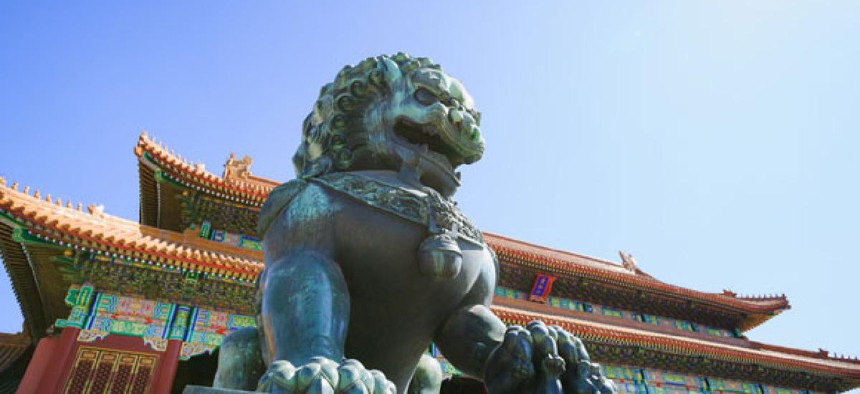China Thwarts Its Citizens’ Access to White House Petition

roseburn3Dstudio/Shutterstock.com
The appeal asked the U.S. to deport a well-connected Chinese woman accused of trying to poison her college roommate in the 1990s.
People who post petitions to the White House website We the People often complain the government isn’t really paying attention to their grievances; another group, however, seems to be paying very close attention: the Chinese government.
On May 5, someone in Miami posted a We the People petition asking the White House to deport Sun Wei, a Chinese woman accused of poisoning her roommate Zhu Ling with Thallium while a student at Tsinghua University in 1995. Sun allegedly lives in the U.S. under the name Jasmine Sun.
That same day, Sina Weibo, China’s most popular social networking site, began blocking key terms from the petition including “Tsinghua,” “Sun Wei” and “Thallium,” according to a list of blocked terms maintained by China Digital Times , a site affiliated with the University of California, Berkeley, aimed at providing unfiltered news from mainland China.
Two days later, on May 7, the Chinese Propaganda Ministry ordered news outlets to not challenge information from authorities regarding the case and not to sensationalize it, according to a directive leaked to the Digital Times . The directive did not mention the White House petition but the Times drew the connection in its story.
Signatures on the Jasmine Sun petition surged on the day it was introduced and for three days after but had slowed to a near standstill by May 10, the petition’s fifth day online, according to a Nextgov analysis.
Out of roughly 141,000 signatures on the petition in early June, 83 percent included no U.S. address information, suggesting the signatures came from abroad. By contrast, only 11 percent of signatures on a petition that urged recounting the U.S. presidential election lacked U.S. address information.
Sina Weibo is like a cross between Facebook and Twitter, according to Anne Henochowicz, the Digital Times’ translation coordinator. The site typically blocks searches on controversial topics, but it’s not clear how often those terms are blocked following a specific government request and how often Weibo blocks the terms on its own initiative, she said.
“In terms of its influence on political and social issues [Sina Weibo] is something the Chinese government watches very carefully,” Henochowicz said. “In the last few years it’s proved an excellent place to bring up grievances and the government almost always responds by blocking search terms.”
Henochowicz was a translator for contractors in Washington before she began work at Digital Times.
Terms on Weibo are often un-blocked once an issue wanes in public interest, she said, and many terms related to the Sun case had been unblocked by mid-June.
Weibo has well over 500 million subscribers and temporarily blocking terms on the site is often sufficient to slow or kill the viral spread of online information, she said.
In contrast to states such as Iran and Syria that block large swathes of the open Internet, China’s become well known for its “ great firewall ,” which manipulates Web access so deftly that Web surfers rarely notice any information is being suppressed.
There is a common Chinese perception that Sun was not charged with Zhu Ling’s murder because of powerful family connections, Henochowicz said, and the case is viewed as evidence of government corruption.
Interest in the case was revived after a similar poisoning incident at Fudan University in Shanghai in April.
Chinese officials have appeared especially sensitive to instances of Chinese problems being appealed to the U.S. since April 2012, Henochowicz said, when a Chinese municipal official and a well-known dissident both sought refuge with American diplomats.
Wang Lijun , a vice mayor in Chongqing, sought refuge in an American consulate claiming he was being threatened by Bo Xilai, a powerful and allegedly corrupt communist party chief. The blind dissident Chen Guangcheng arrived at the American embassy in Beijing after escaping from house arrest.
An earlier version of this story misspelled the name of Fudan University.
( Image via roseburn3Dstudio / Shutterstock.com )





